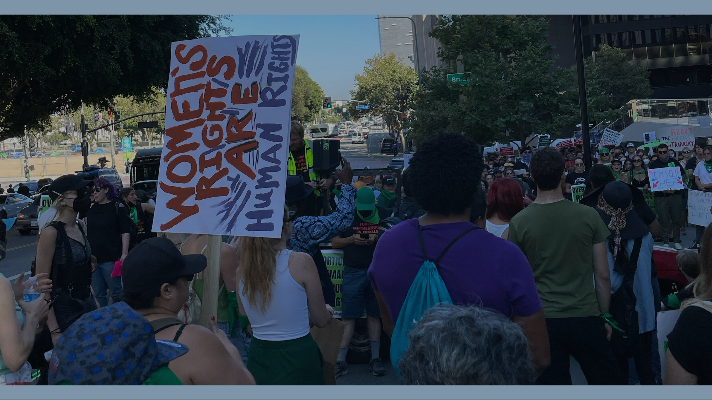Written By: Christopher B. Dolan and Vanessa C. Deniston
This week’s question comes from Amanda in Richmond CA who asks: I have a number of young female relatives living in states that are expected to ban abortion. I am deeply concerned for their safety and bodily autonomy should they have an unplanned pregnancy. As a native Californian, I feel deeply privileged to live in a state that recognizes fundamental reproductive rights, but what about my relatives? Can our state help them? If so, how and to what extent?
Thank you for your timely and thoughtful question. Weeks after the Supreme Court’s unprecedented decision to overturn Roe v. Wade and the constitutional recognition of a woman’s right to control her own reproductive destiny, many states with laws recognizing these rights are still reeling from the shock and grappling with how to respond. California lawmakers, however, have been anticipating and preparing for this moment for years and were ready with immediate, aggressive action. On June 24, 2022, the very day the Supreme Court announced its decision, Governor Gavin Newsom signed AB 1666, legislation designed to insulate patients and providers from civil liability in other states seeking to impose their anti-abortion laws on individuals within California’s borders. Newsom has been adamant California will welcome women from other states seeking abortion care, stating,
“We’re not going to be asking for your ID. We’re not going to be asking you a litany of questions that are asked in almost every other state. You have a right to confidentiality.”
Post-Roe, California is the nearest legal abortion provider for an estimated 1.4 million women. It is estimated that up to 16,000 people will travel to California seeking an abortion per year. There can be no doubt that this is a humanitarian health crisis of epic proportions and will greatly impact California, the state slated to become a west coast stronghold for reproductive rights. To meet these challenges, Governor Newsom has proposed a $125 million dollar package to expand access for women within the state and help the state prepare for the influx of out-of-state women seeking reproductive healthcare that are likely to travel to California from states imposing bans or otherwise restricting access.
In addition to AB 1666, there are twelve other bills currently under consideration by California’s legislature regarding reproductive rights within the state. Several of these bills address extending resources and support to out-of-state individuals seeking abortion access and shielding providers from out-of-state legal attacks. A few of these include:
-
SB 1142 – Establishes an “Abortion Support Fund” to provide grants to California organizations assisting patients, including out of state patients traveling to California, in overcoming barriers to abortion access through practical and logistical support such as covering the cost of travel expenses and medical procedures.
-
AB 2091 – Enhances privacy protections for medical records related to abortion care under California’s Reproductive Privacy Act, greatly limiting disclosures to out of state law enforcement and third parties seeking to enforce out of state abortion bans.
-
AB 2626 – Protects abortion providers in California by prohibiting the removal or suspension of medical licenses of a licensed providers performing or assisting in abortions in California, compliant with California law.
This November, Californians will have an opportunity to vote on SCA-10, a proposed amendment to the California State Constitution that would explicitly enshrine the fundamental right to seek an abortion and access contraceptives. Currently, that right exists under California’s Reproductive Privacy Act, which ensures privacy and liberty in personal reproductive decisions. SCA-10 seeks to further cement these rights by adding direct and unambiguous language to the state constitution. In relevant part, the proposed amendment in SCA-10 reads:
“The state shall not deny or interfere with an individual’s reproductive freedom in their most intimate decisions, which includes their fundamental right to choose to have an abortion and their fundamental right to choose or refuse contraceptives.”
For the first time in this nation’s history, the U.S. Supreme Court has made the decision to revoke a fundamental right previously recognized nationwide. Prior to this Court’s recent reversal, cases concerning the interpretation and limits of fundamental rights have either been expanded or clarified, but upheld. The significance of this preternatural decision by the Supreme Court cannot be understated as it signals, unambiguously, that other fundamental rights currently recognized at a national level are at risk of being recalled and shifted back to individual states to define, redefine and interpret as their state legislature sees fit. This will inevitably create cultural polarization and legal inconsistencies state to state.
For now, out-of-staters seeking refuge in California from oppressive laws in their home states limiting or revoking their reproductive rights, have resources that are likely to expand even further by the end of the year.










